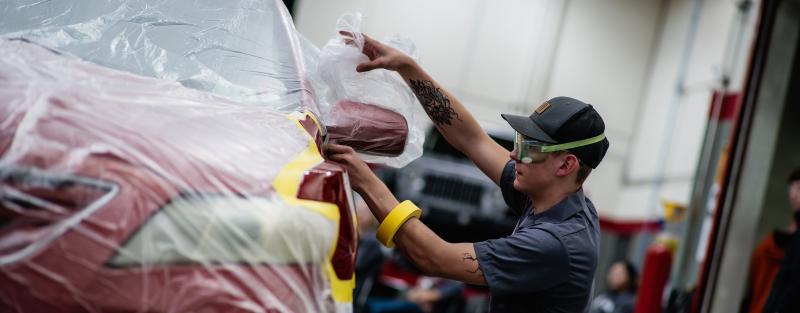Gain Essential Industry Skills With a Collision Repair Certificate at Aims
Certificates are an alternative to degree programs that allow you to explore a subject or build new career skills. Aims offers six auto body certificates covering various collision repair skills to prepare you for employment in a particular area of automotive collision repair, such as upholstery, plastics repair or refinishing.
The course credits from three of these certificates (non-structural, structural and plastics repair) can also apply toward earning a collision repair degree at Aims.
